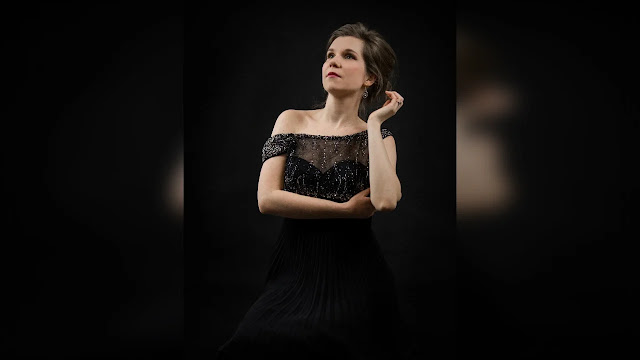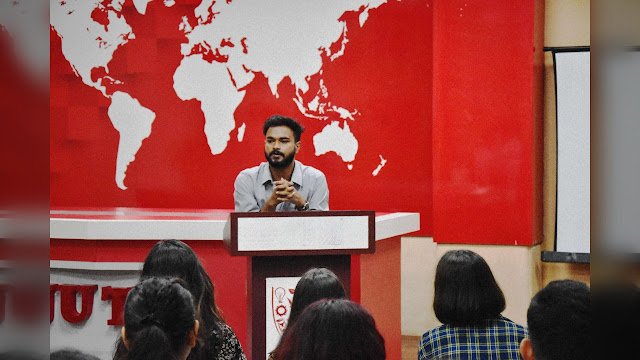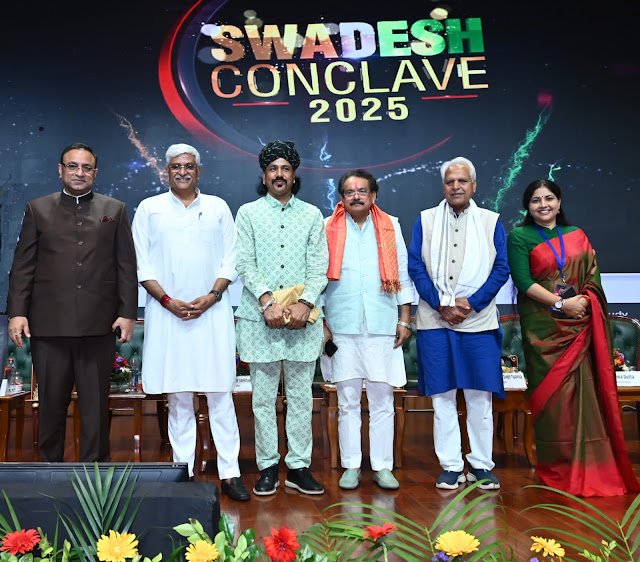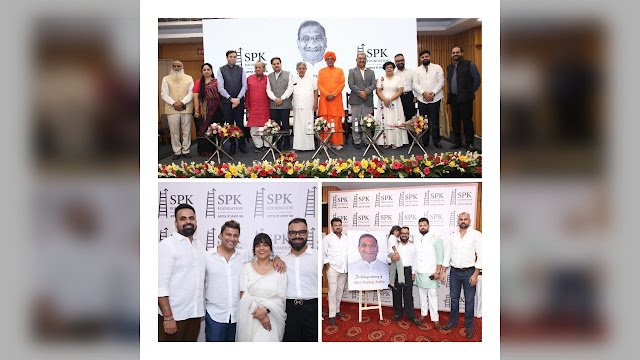Music serves as a universal language that
transcends borders, fostering cultural exchange by connecting people through
shared rhythms, melodies, and emotions. It acts as a bridge, allowing
individuals from diverse backgrounds to explore and appreciate each other’s
traditions, values, and histories. Festivals, concerts, and collaborative
performances bring artists and audiences together, creating spaces for dialogue
and mutual understanding. For instance, genres like jazz, reggae, or classical
music have evolved through cross-cultural influences, blending distinct styles
to create something new and unifying. By sharing music, communities celebrate
their unique identities while embracing the richness of global diversity,
promoting empathy and harmony in an increasingly interconnected world.
The initiative “Harmony in
Diversity:
Promoting Cultural Exchange Through
Music” has earned global acclaim for its innovative approach to uniting diverse
musical traditions, particularly between India and Norway. Praised by outlets
like The Guardian and BBC Culture as a “powerful symbol of cross-cultural
dialogue,” it has been lauded by UNESCO and the Norwegian Culture Centre
for fostering artistic collaboration and mutual respect. Audiences on X have
celebrated the emotional resonance of performances blending Indian ragas with
Norwegian orchestral elements, calling them “a celebration of humanity’s shared
spirit.” Musicians and cultural leaders alike commend the initiative, led by
figures like Shahroz Ali Khan, for creating a groundbreaking platform that
transcends borders and sets a model for global cultural unity through upcoming
concerts in Delhi and Norway
Elizaveta Agrafenina: The Norwegian
Soprano Building Bridges Between Cultures Through Music
In a vibrant celebration of musical
diplomacy, the distinguished Norwegian soprano is emerging as a beacon of
cultural harmony, seamlessly uniting East and West through her artistry. Her
voice, often praised as “enchanting, resonant, and profoundly moving,”
captivates global audiences, weaving together centuries-old traditions with a
timeless grace that transcends borders. Born in Yaroslavl, Russia, and nurtured
in Norway, her musical journey began with early choral and solo performances,
followed by a youthful exploration of rock and metal before embracing her true
passion for classical music. Her refined skills, honed at prestigious
institutions like the Sibelius Academy in Finland, the University of Agder in
Norway, and the Conservatory of Amsterdam under esteemed mentors such as Sasja
Hunnego, Pierre Mak, and Jan-Paul Grijpink, have solidified her reputation as a
luminous talent fostering cross-cultural unity.
Since her operatic debut in 2010 as Belinda
in Dido and Aeneas, the soprano has portrayed iconic roles such as Susanna in
Le Nozze di Figaro, Despina in Così fan tutte, Fenena in Nabucco, and the dual
role of Sandmännchen/Taumann in Hansel und Gretel. Her performances with the
Young Artist Program at Bergen National Opera, alongside the Bergen
Philharmonic Orchestra and Edvard Grieg Vocal Ensemble, have established her as
a leading voice of her generation.
Beyond opera, the soprano shines in chamber
music and Lied, interpreting works by composers like Grieg, Shostakovich,
Schoenberg, and Weinberg. Her performances have graced prestigious venues such
as Muziekgebouw (Netherlands), Grieghallen (Norway), and the Helsinki Music
Centre, under conductors like Masaaki Suzuki, Frédéric Chaslin, Ed Spanjaard, and
Matthew Rowe.
A New Cultural Chapter: India Meets
Norway Through Music
In a recent milestone for cross-cultural
collaboration, Mr. Shahroz Ali Khan, in partnership with the Norwegian Culture
Centre and cultural advisors Jon Vikan and Olga Vikan, organized a visit to the
soprano’s performance in Norway. The delegation, including Indian celebrities
and media personalities, was warmly welcomed, and the performance left a
profound impact.
This event marks a significant moment, as
it reflects growing Indian interest in Norwegian classical music and European
musical traditions. “It’s heartening to see Indian culture embracing and
enjoying European classical music so naturally,” said Shahroz Ali Khan. “This
is a strong symbol of cultural exchange and just the beginning.”
Mr. Khan announced an upcoming
collaborative concert featuring Indian and Norwegian artists, set to take place
in Delhi later this year, with a reciprocal performance in Norway the following
month. These events aim to harmonize diverse musical traditions, fostering
deeper artistic partnerships between the two nations.
“This initiative is not just about
music—it’s about unity, mutual respect, and building cultural bridges,” he
added.
Through her artistry, the soprano continues
to inspire, weaving a global tapestry of collaboration, creativity, and shared
human experience.
A Melodic Ambassador of Cultural
Harmony: Elizaveta Agrafenina
Elizaveta Agrafenina, the Norwegian
soprano, is a shining example of music’s power to transcend borders and unite
cultures. With her enchanting voice and captivating stage presence, she has
been building bridges between East and West, fostering a deeper understanding
and appreciation of diverse musical traditions. Elizaveta’s commitment to
fostering cultural harmony is truly inspiring. She is a role model for aspiring
musicians and a testament to the power of music to bring people together. Her
performances are a reminder that, despite our differences, we can come together
and appreciate the beauty of our shared human experience. Elizaveta Agrafenina
is a luminous talent, shining bright in the world of opera. Her music is a gift
to audiences worldwide, and her dedication to cultural exchange is a beacon of
hope for a more harmonious world. We look forward to seeing her continue to
inspire and unite people through her extraordinary talent.

.webp)









